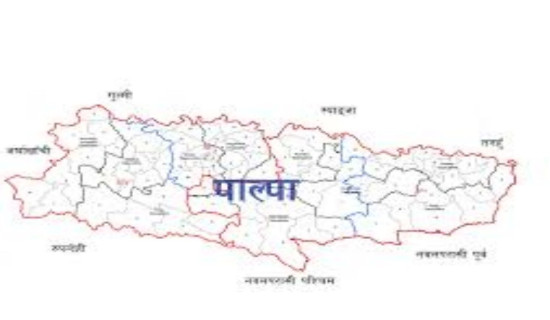- Thursday, 29 January 2026
Curbing Plastic Pollution In Nepal
Nepal is one of the South Asian countries hardest hit by the industrial-scale degradation of the environment. Plastic, 99 per cent of which is derived from fossil fuels, is arguably the most conspicuous story of them all. According to the ICIMOD, Nepal generates 2.7 tons of plastic waste daily, polluting the country's streets, rivers, forests, and even Himalayan trekking routes. Nepali rivers carry plastics through the country's Terai area - and into India's Ganges, which flows into the Bay of Bengal, disrupting the global ocean ecology. Moreover, a single plastic bag endures for at least 500 years, making them one of the most enduring gifts - or curses - left to future generations of Nepalis.
Reforms in Nepal, including the introduction of an urban recycling programme, can help alleviate the plastics crisis. To illustrate, Nepal's Solid Waste Management (SWM) budget prioritises street sweeping above recycling and eco-friendly disposal. In reality, the urban poor play a huge role in scavenging and recycling waste, and reusable products are sold to Indian manufacturers. If municipalities work with the urban poor by bringing them into the formal sector or buying recyclable waste from them directly, some of the benefits will trickle down to domestic manufacturers. In addition, many new municipalities formed since the new Nepali constitution in 2015 are yet to develop formal waste management systems. Still, local reforms should supplement global economic structural changes, not replace them.
Prevailing discourse
Unfortunately, the prevailing discourse around plastic pollution obscures its causes. For example, consider World Bank's 2022 Valentine's Day social media campaign "#DitchPlastics." According to a blog post, the campaign aimed to encourage South Asians to minimise the 40 million metric tons of plastic waste dumped annually in the region. Put differently, the blog implicitly assumed that individuals’ ignorance and "lack of love" was a significant cause behind plastic waste. We should learn to be instinctively suspicious of such arguments that attribute pollution to a purported "lack" on the part of the countries and citizens of the Global South; as I will discuss below, these arguments, which so many Western scholars and their non-Western counterparts indulge in, are inaccurate.
Environmental justice scholars locate the problem of plastic pollution at its source: the global political economy of plastic production and the economic logic driving key commercial and political actors of today, in which the World Bank, with its neoliberal ethos, upholds the status quo. Consider how, according to Canadian researcher Dr. Max Liboiron, countries portrayed as the top marine plastic contributors, such as China, Indonesia, the Philippines, Vietnam, and Sri Lanka, actually receive a disproportionate amount of plastic waste from higher-income regions.
Indeed, from the discovery of the world's first manufactured plastic in 1862 to the post-Second World War expansion of petrochemical companies (i.e., plastic producers) and the routine use of corporate "deceit and denial" tactics to underplay the risks of plastic products, the history of plastic is a largely Euro-American story; we, citizens of the Global South, are the recipients of its legacy, resigned to bear its costs disproportionately. Yet, the Global North-dominated petrochemical industry responds to environmental justice concerns by blaming consumers (for not recycling and littering) or by promoting band-aid solutions such as chemical recycling (incineration), green technologies, or public awareness campaigns.
Therefore, can consumers in the Global South — which, after all, constitutes the global majority — be held responsible when we have no choice but to buy plastic-packaged goods? Skeptics might argue that Nepal was never colonised (although marginalisation of indigenous and other communities has functioned like colonial oppression). Still, the decolonial perspective shows us that the environmental effects on the Global South, such as in Nepal, are a continuation of colonial violence - that very same process by which the fates of our lands, natural resources, bodies, and souls remain at the discretion of others.
International institutions that hinder Global South countries from seeking permanent solutions to environmental problems are equally part of the problem. Despite the grim situation, I want to leave the reader with some areas for hope and positive action. Kenyan scholar Ngũgĩ wa Thiong'o wrote in Decolonising the Mind, "Prescription of the correct cure is dependent on a rigorous analysis of the reality." In other words, the process of dismantling external structures that do not serve our interests should start from within: through self-education and civic action. Informed with the appropriate facts about material reality, we can teach ourselves and our peers to expose capitalist myths about the apparent "necessity" of plastics production and collectively advocate for international and regional legislation addressing the interlocking crises in our region.
Inclusive alternatives
The March 2022 mandate for a Global Plastic Treaty, established at the UN Environment Assembly in Nairobi, Kenya, represents a significant, though imperfect, step towards holding petrochemical industries to account. While the Treaty failed to produce plastic production caps, participating states and businesses recognised, for the first time, that a globally enforceable agreement covering the lifecycle of plastics is required. The challenge for us is to reimagine global governance institutions so that they do not remain the sole realm of politicians and experts and, if such democratic demands are refused, to abandon outmoded forms of global engagement and create newer, inclusive alternatives.
Given its geographical location at the foothills of the Hindu Kush Himalaya and its significance as a source of fresh water for downstream countries, Nepal has the potential to become a regional leader in combating plastic pollution — and we all have a stake in ensuring that it does.
(Tanha is Dhaka-based writer and international development scholar.)

















